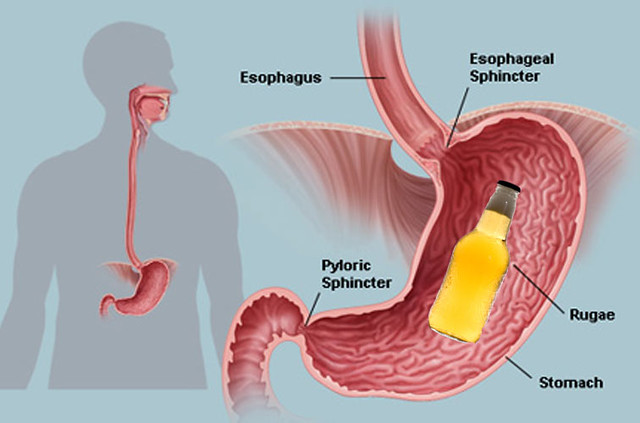
Late last year, a judge in Buffalo, New York, dismissed a case against a 35-year old teacher who was stopped and charged with a DWI. When Hamburg Town Police originally arrested the teacher, her blood alcohol was measured to be .33 percent, more than four times higher than the state’s legal limit. The first question is how on earth was she still alive? The second, is how is that possible? It turns out she suffers from a rare condition known as auto-brewery syndrome, or gut fermentation syndrome. The condition manifests itself “in which intoxicating quantities of ethanol are produced through endogenous fermentation within the digestive system. One gastrointestinal organism, Saccharomyces cerevisiae, a type of yeast, has been identified as a pathogen for this condition.” It can also give a false positive for being drunk, and has been used several times as a defense in drunk driving cases.
And that’s exactly what happened in this case, as reported by the Buffalo News reported in late December, Woman’s body acts as ‘brewery,’ so judge dismisses DWI. If that sounds about as realistic as a pregnant woman trying to get out of a fine for driving in the commuter lane (which has actually happened) it’s apparently a real thing, though is extremely rare. So don’t get any ideas.
This Guy Brewed Beer in His Stomach and the Mad Science Blog also tackled Auto-Brewery Syndrome. And even NPR has reported on the phenomenon. According to a report on CNN:
Also known as gut-fermentation syndrome, this rare medical condition can occur when abnormal amounts of gastrointestinal yeast convert common food carbohydrates into ethanol. The process is believed to take place in the small bowel, and is vastly different from the normal gut fermentation in the large bowel that gives our bodies energy.
First described in 1912 as “germ carbohydrate fermentation,” it was studied in the 1930s and ’40s as a contributing factor to vitamin deficiencies and irritable bowel syndrome. Cases involving the yeast Candida albicans and Candida krusei have popped up in Japan, and in 2013 Cordell documented the case of a 61-year-old man who had frequent bouts of unexplained drunkenness for years before being diagnosed with an intestinal overabundance of Saccharomyces cerevisiae, or brewer’s yeast, the same yeast used to make beer.
So while you may laugh — or I might at least — it’s apparently no fun for ABS sufferers. Better to raise your blood alcohol via the traditional way, ingesting beer brewed by a professional.


“It can also give a false positive for being drunk”
That’s not exactly accurate, is it? I mean, if your BAC is 0.33, you’re going to be pretty well lit up regardless of the source of the ethanol. It’s a true positive.
Exactly, she still should not be driving and poses a risk to public safety by doing so. How is that not as criminal as DWI by ingestion?
If you read though the post, and any of the links, it’s made clear that even though people with Auto-Brewery Syndrome test positive and well above the legal limit for drinking, they can and do function normally. The machine things they’re drunk but they’re essentially not. Most people would be dead at 0.33, which alone should tell you that their system doesn’t react as in typical people without the condition. The case, and many others like it, were dismissed because the readings are not the same as a normal person would be. Maybe people build up tolerances having it their whole lives, or perhaps they’re just something else about how it effects a person when it’s created in their gut as opposed to taking in the traditional way, that is by drinking a pint. So they’re not “a risk to public safety” because the reading doesn’t reflect their ability to function.
More troubling, I must say, is your willingness to brand these people “criminals” and calling it a “DWI by ingestion.” I think you may have missed something. They specifically don’t ingest anything. That’s the point. And criminal behavior usually requires intent. People with ABS can’t help what their body does when it isn’t functioning normally, or typically. In most cases they don’t even know that their BAC is abnormally high and since they’re still able to function they don’t get the same warning signs that a person without ABS would get after actually ingesting alcohol.
Thanks Jay for your thoughtful treatment of a horrible disease. A few clarifications: Someone with ABS who has a 0.30 may be able to “function” but they are still drunk and would still show signs of loss of inhibition, lack of coordination, etc., they may just not be comatose like an average social drinker would be.
Also, we believe a person should only be given a pass if they didn’t know they had ABS when ticketed – just like if a person has their first ever seizure when driving. After that, they shouldn’t drive until cured/controlled or yes, they should be ticketed.